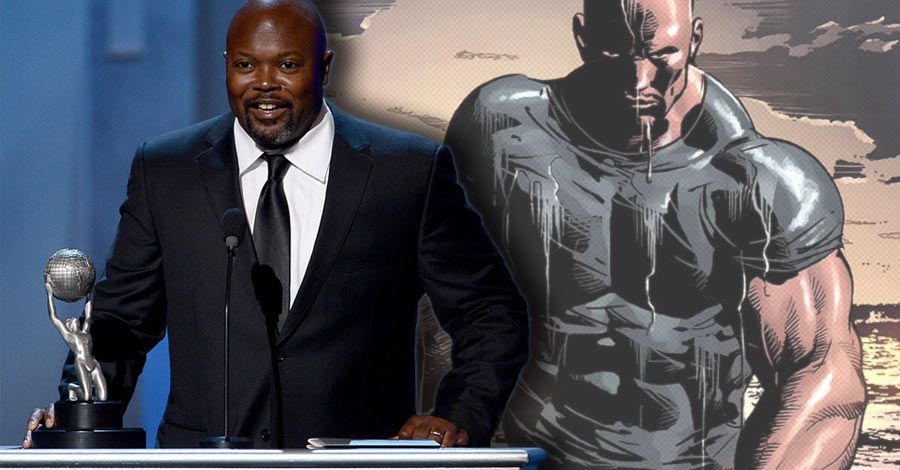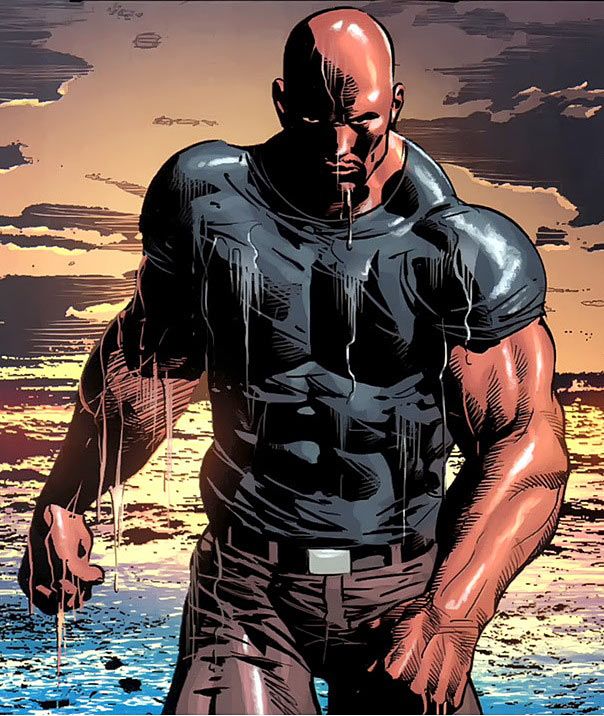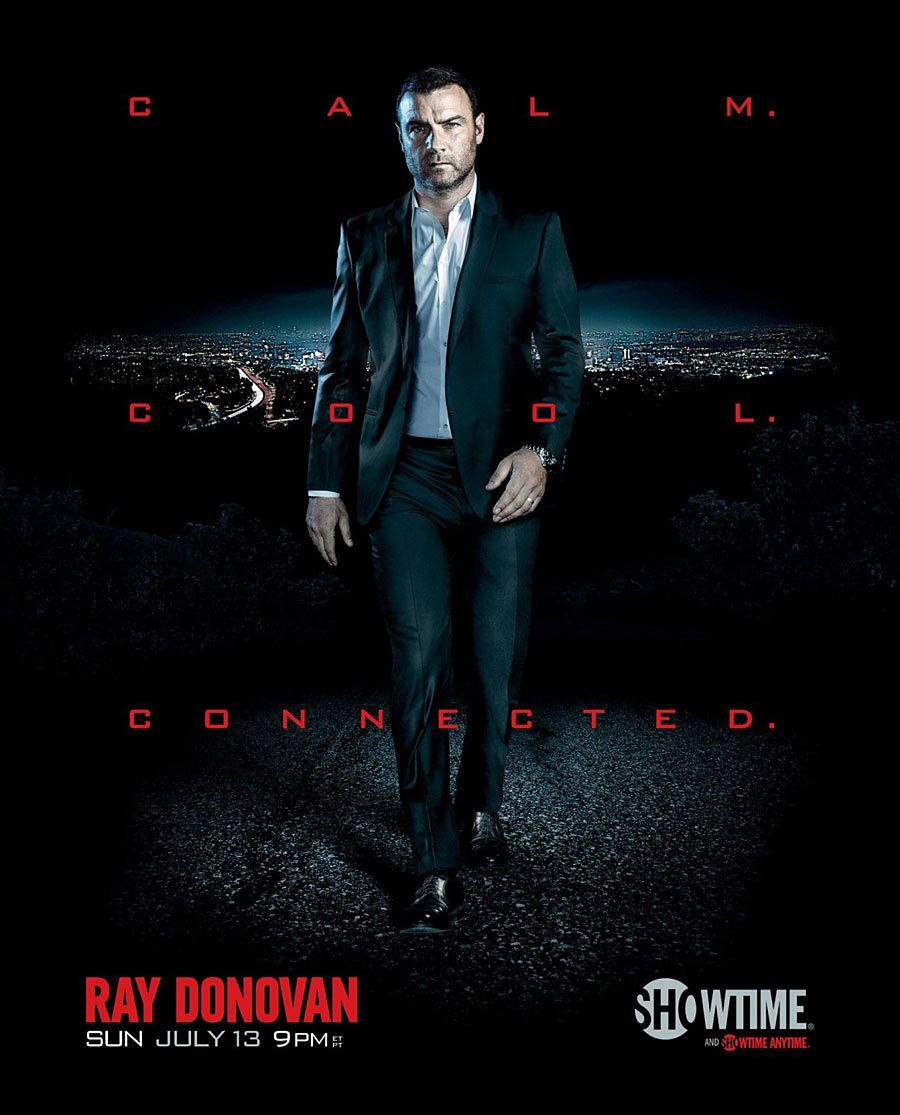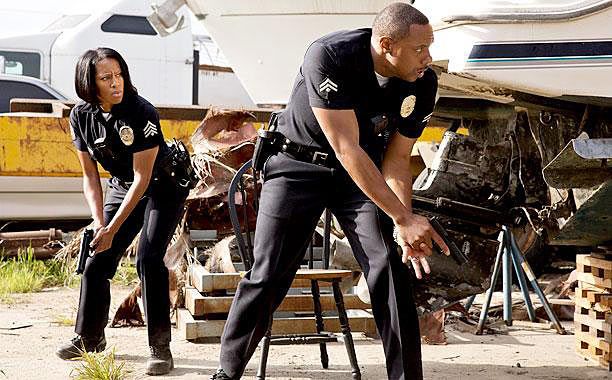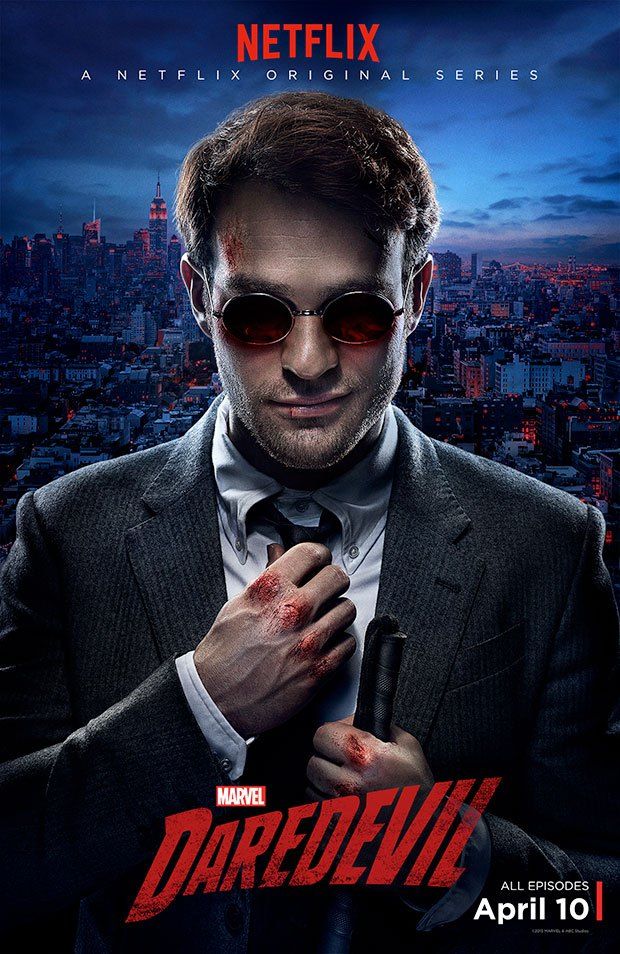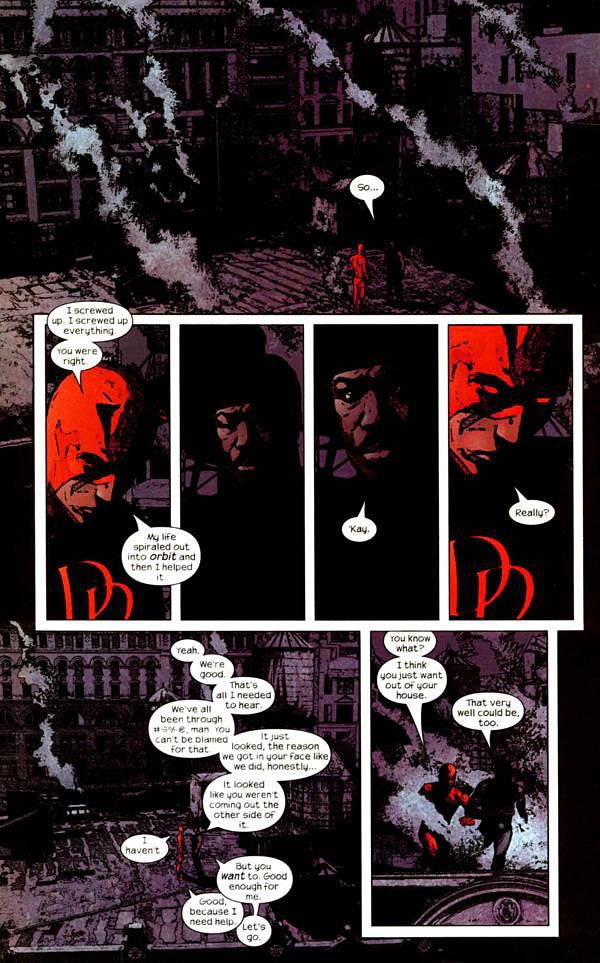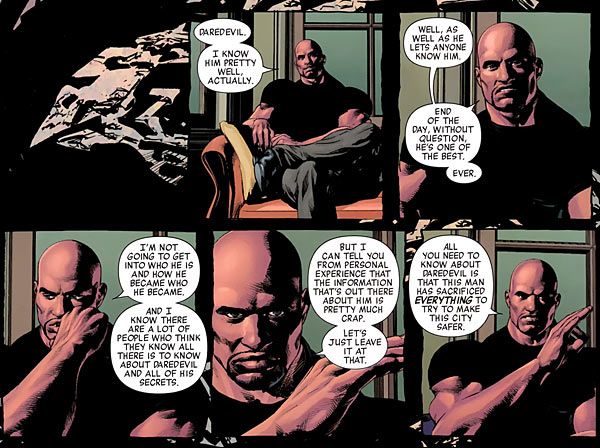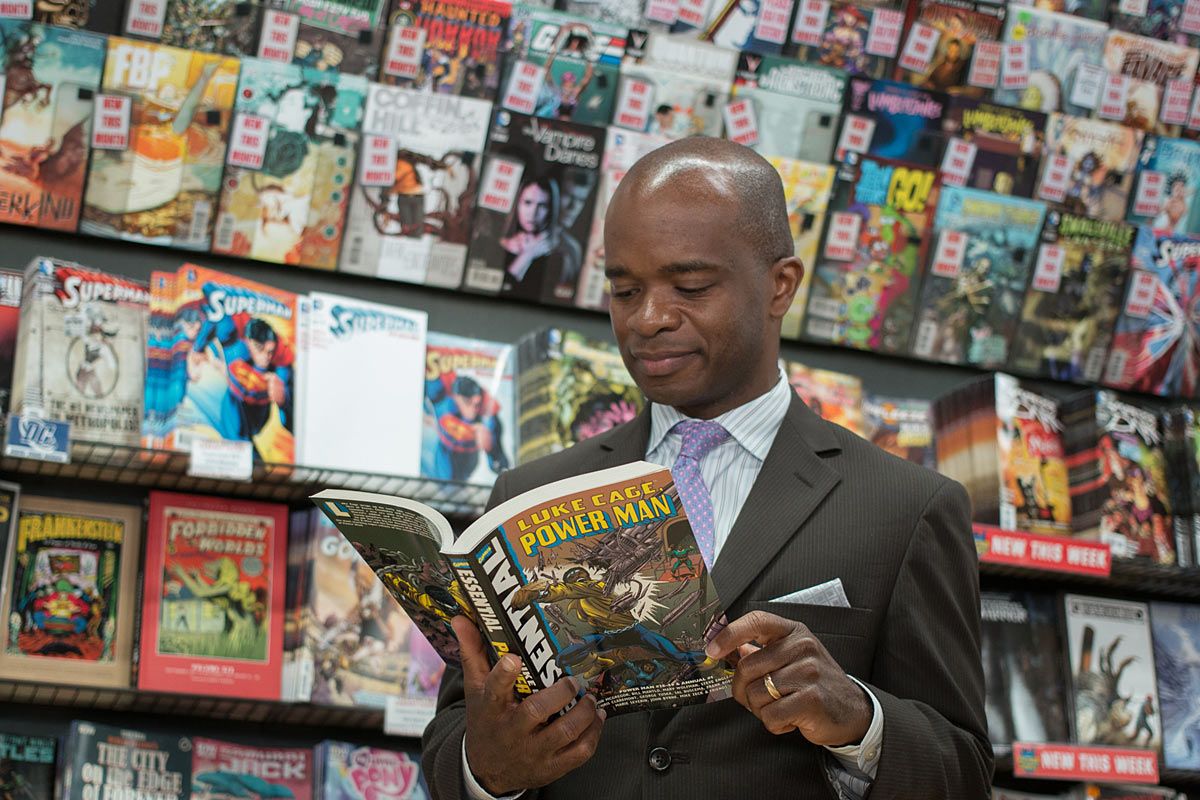Last week, a question that has been on my mind for some time was answered when Marvel announced that television writer and producer Cheo Hodari Coker would be the Executive Producer and Showrunner for "Luke Cage," the upcoming Netflix/Marvel Studios series set to premiere in 2016.
In a previous column titled "Real Life Proves Why Luke Cage Endures," I broached the subject of the series' showrunner after touching on the character's resonance with the struggles of Black Americans in the latter half of the 20th Century, and in my 2014 year-end column, "The Year of the D Word," I wrote the following:
"If the Marvel/Netflix team hires a Black man as the Executive Producer/Showrunner of the Luke Cage series, it will make for an impactful, progressive move."
So when I learned about the announcement, I was thrilled and optimistic about how the show would turn out.
Marvel Names "Southland" Producer Hodari Coker As "Luke Cage" Showrunner
In part, because I've followed some of Coker's work, and he's just damn good at his chosen craft, the writing and management of character-driven stories and their worlds, encompassing the life experiences of diverse people from different demographics.
TNT's "Southland" which introduced me to the work of actor Ben McKenzie of FOX's "Gotham," always managed to show the everyday strangeness and insanity of life on a universally-identifiable level. The writing and directing were tight, the variance of personalities and character texture of the different officers was impressive, and the way in which the show moved kept me engaged.
It was familiar, yet different.
In addition to "Southland," Showtime's "Ray Donovan," and the film "Notorious" about the hip-hop legend Notorious B.I.G., all of which the popular press has mentioned the most, Coker also worked on the NCIS franchise and the FOX series "Almost Human," co-produced by J.J. Abrams' Bad Robot Productions.
His range is versatile, from street to science fiction to globally-known episodic procedurals, and that's what Luke Cage needs.
A character that has been in print for more than forty years, Luke Cage has gone through many transformations and interpretations, not all of them exemplary or positive, to say the least.
Very few of the eras of Luke Cage were written by authors of color, and Luke has been smacked down the evolutionary scale, in order to climb the mountain for twice the distance to find his way back into the light of being a positive example for heroism and readers of all ethnicities, especially Black readers. You need only read "Cage" by Brian Azzarello & Richard Corben and volume 1 of "Alias" by Brian Michael Bendis & Michael Gaydos to get a sense of what I mean, in the context of the character's lowest states of representation.
So yes, I'm also thrilled and optimistic about how "Luke Cage" will turn out because Cheo Hodari Coker is a man of color. I believe he gets the nuances that other writers have missed, the social and political relevance that many have read about but don't perceive all of the layers of, and even with all of that, he will shape an exciting narrative with themes that a large audience will recognize.
Familiar, yet different.
Marvel's choice in picking Coker flies in the face of the ridiculous notion of people of color now being given too many roles unfairly in Hollywood as of late, as detailed by one writer of a popular entertainment website. It does so by not bending to such criticism and holding back on hiring a man of color for the job. It does so without timidity or concern. It does so, I believe, because it's the right thing to do.
Naïve, right?
You may think so, but we all know that Marvel Studios is so successful that they can sell you any hero, no matter how popular or obscure, how alien or strange, and prepare it in a way that we will consume and digest it with pride.
They have profoundly affected the way other studios view characters and worldbuilding.
They could have chosen anyone to be the EP and Showrunner for "Luke Cage," and it probably would not have affected the ratings-to-come one blip in the Nielsen scale.
But they chose this man for the job.
And it serves as an example for our time, for this genre.
Additionally, it's an excellent dovetail with the Marvel Comics print universe, in which Luke Cage's world connects in tight threads not only with the urban world of Daredevil, star of the first Netflix/Marvel Studios series, but with the Avengers, stars of the past blockbuster film, the upcoming "Avengers: Age of Ultron," and the two films slated to follow in the next handful of years.
Luke Cage is versatile and multilayered, from his character to his character relationships.
It's been a long time coming, and I'm going to enjoy seeing his story unfold on screen, but I'm also looking forward to the next thing.
Last year, my interest was on who would executive produce and run the show for Luke Cage.
This year, my interest in regards to the character is how Marvel Comics' publication slate will parallel and exploit the increased presence of Luke Cage.
Marvel Comics is, undoubtedly, the number one American publisher of superhero comics. The company's business acumen on various levels of the operation is so tight, it's worthy of examination and study. The correlations between their publishing slate and their cinematic output are strategically timed for maximum windfall effect, as it should be.
If Marvel Studios can open their doors in this decade to a person of color to tackle Luke Cage, will Marvel Comics follow suit?
Not because of being perceived as buckling to political correctness, not because of following their moves of their primary competitor, not because of mere imitation of the studio hire, and not even because of the positive PR it would generate.
Because they can.
Because they're the leader in this industry.
Because it would be a very damn cool thing to do.
Let's see just how gutsy Marvel Comics will be with Luke Cage, tomorrow.
Joseph Phillip Illidge is a public speaker on the subjects of race, comics, and the corporate politics of diversity. In addition to his coverage by the BBC and Publishers Weekly, Joseph has been a speaker at John Jay College of Criminal Justice, Digital Book World's forum, Digitize Your Career: Marketing and Editing 2.0, Skidmore College, Purdue University, on the panel "Diversity in Comics: Race, Ethnicity, Gender and Sexual Orientation in American Comic Books," and at the Soho Gallery for Digital Art in New York City.
Joseph is the Head Writer for Verge Entertainment www.verge.tv), a production company co-founded with Shawn Martinbrough, artist for the graphic novel series "Thief of Thieves" by "The Walking Dead" creator Robert Kirkman, and video game developer Milo Stone. Verge has developed an extensive library of intellectual properties for live-action and animated television and film, video games, graphic novels, and web-based entertainment.
His graphic novel project, "The Ren," about the romance between a young musician from the South and a Harlem-born dancer in 1925, set against the backdrop of a crime war, will be published by First Second Books, a division of Macmillan.
Joseph's newest comic book project is the upcoming Scout Comics miniseries "Solarman," a revamp of a teenage superhero originally written by Stan Lee.

